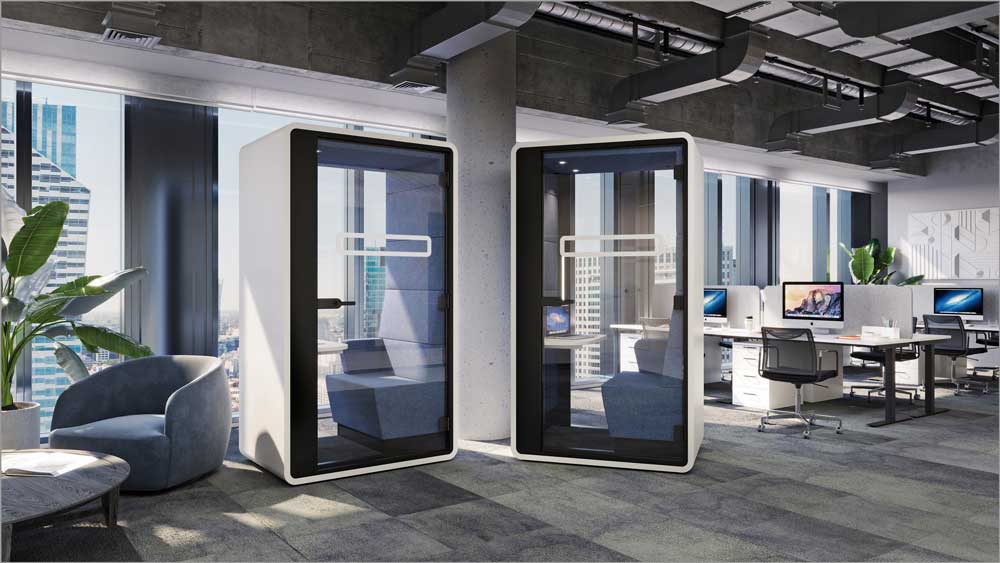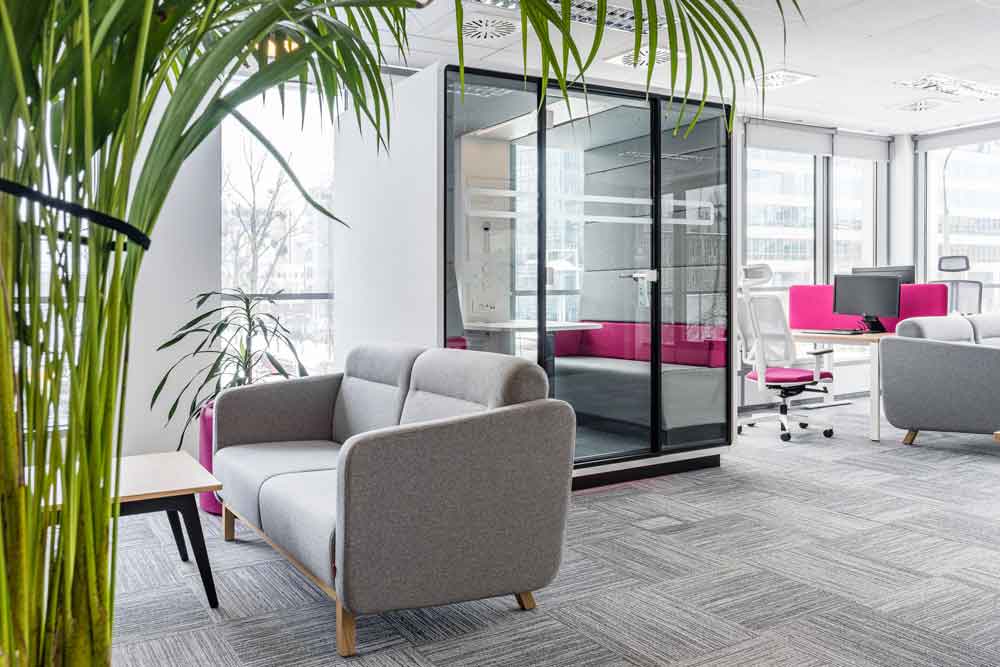Digital nomads define a new era of professionals who combine their passion for travel with the opportunity to work remotely. They symbolise a modern approach to working life, characterised by independence, freedom and mobility. Nevertheless, this working style does not lack challenges, such as effective collaboration or maintaining communication continuity. In dealing with these issues, today’s offices are beginning to adapt to these specific needs, creating advanced virtual working environments that facilitate integration between remote workers and stationary team members. Find out how adapting to the needs of digital nomads is shaping the future of offices in a hybrid working world.

Who are digital nomads?
Digital nomads are a new category of workers, who combine remote working with a passion for exploring the world. These are individuals who are not confined to one workplace. They use technological innovation to work from the most diverse locations of the globe. Some move every few months, while others prefer a permanent home, travelling only occasionally. Common to all digital nomads is their autonomy and quest for adventure. They can be freelancers, full-time employees or even business owners. Over the past decade, digital nomadism has come a long way – from being a niche lifestyle to the mainstream. The rise in popularity of this lifestyle is due to a number of factors, including cultural changes that emphasise the value of experiences over material possessions.
How have digital nomads changed workplace culture?
Digital nomads have revolutionised the concept of a customary workplace, while also contributing to the evolution of work culture around the world. Their independence, mobility, and ability to integrate work and travel into their lives have come to symbolise a new era of professional flexibility. Owing to them, the boundaries of the office have expanded beyond the space’s four walls and the world has become one big workplace.
They preach that work does not have to be confined to a single location or completed in a nine-to-five schedule. They show that work-life balance can be achieved in ways that previously seemed impossible. They have made the culture of work more inclusive, results-oriented and open to a variety of experiences and perspectives. In the age of digital nomads, the value of an employee is not assessed by where they perform their duties, but by how they contribute to the team and what results they achieve.

Offices tailored to the needs of digital nomads
With their unconventional approach to work, digital nomads have helped to revolutionise the concept of office design. In response to their needs, employers started transforming their offices into flexible, multifunctional environments. It became apparent that the modern office should be adaptable, as it enables a seamless transition between individual and team work, as well as balancing deep focus and respite.
Coworking zones: a place for nomads in a digital world
Professionals who combine work and travel are keen to take advantage of the coworking offices available around the world. These are specially designed spaces that allow you to rent a desk by the hour. However, modern coworking spaces go a step further, offering facilities such as Hushoffice acoustic work pods. These are small, soundproofed rooms designed for undisturbed phone calls and video conferencing, and focused work.
Coworking zones have thus become both a space in which to perform duties and an environment for those who roam the world in search of inspiration, without sacrificing professional working conditions.
Office space for online meetings
To meet the needs of office workers and digital nomads alike, employers need to create the right environment for online meetings. Providing a high-quality internet connection and sound, they must create the ambience to showcase their professional approach in the digital world. HushHybrid acoustic work pods take up very little space, so you can use them to quickly create ideal video meeting spaces. They cut out noise and distractions, enabling smooth communication.
Hybrid collaboration areas
Spaces for hybrid collaboration have become increasingly necessary in many offices. Preferably, they ensure a seamless transition between virtual and physical interactions, blending the advantages of both. Multi-person acoustic work pods are used for working on projects together, regardless of where the participants are located. In addition, hybrid collaboration zones promote team integration by encouraging spontaneous meetings and idea exchanges, both face to face and online. In this way, digital nomads can reap the full benefits of the flexibility of remote working, while retaining the value of authentic human interaction.